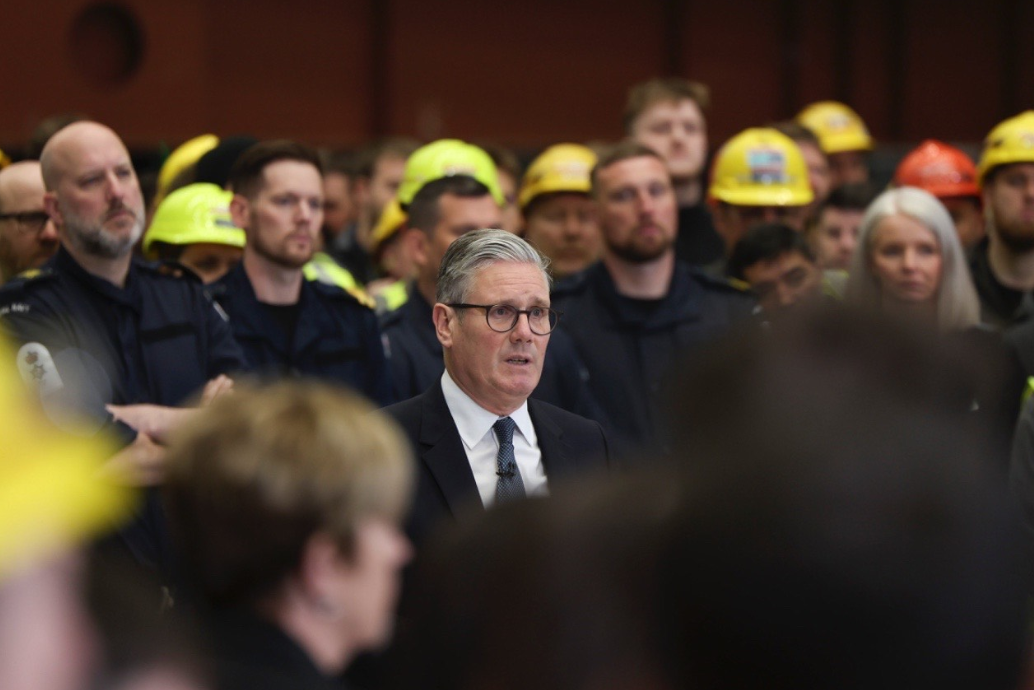Britain Unveils Major Defense Overhaul:In a significant shift in defense strategy, the British government has announced an ambitious plan to rearm its military, strengthen its nuclear deterrent, and prepare its armed forces for a state of warfighting readiness. Prime Minister Keir Starmer declared that the United Kingdom must adapt to a rapidly changing global security environment, where threats from advanced military states are growing more direct.
Britain Unveils Major Defense Overhaul
In a significant shift in defense strategy, the British government has announced an ambitious plan to rearm its military, strengthen its nuclear deterrent, and prepare its armed forces for a state of warfighting readiness. Prime Minister Keir Starmer declared that the United Kingdom must adapt to a rapidly changing global security environment, where threats from advanced military states are growing more direct.
“We are moving to warfighting readiness as the central purpose of our armed forces,” Starmer said. “When we are being directly threatened by states with advanced military forces, the most effective way to deter them is to be ready to deliver peace through strength.”
As part of this overhaul, the UK will invest billions in its nuclear capabilities. This includes funding for a dozen new nuclear-powered attack submarines and significant upgrades to its existing nuclear warheads. The move represents a sharp pivot from years of defense budget cuts, which had reduced the size and operational capability of the British military to its lowest levels in three centuries.
Furthermore, British PM Starmer stated, “We are moving to warfighting readiness” in response to the threat of war from Russia. Will build 6 munitions factories & thousands of long-range missiles. Integrate drones into naval operations. Build a new submarine every 18 months, £15 billion for nukes ($20.3B)
In response to both global tensions and pressure from allies, especially the United States, Britain is also focusing on expanding its domestic defense manufacturing capabilities. Starmer announced that at least six new munitions factories will be built across the UK, creating over a thousand jobs. Additionally, the government plans to produce thousands of new long-range weapons aimed at enhancing European deterrence, supporting a further 800 jobs.
“We will defend our homeland by investing in our air and missile defense to better protect these islands,” said the Prime Minister.
This reinvestment in defense comes amid ongoing concerns over the war in Ukraine and growing expectations from NATO allies. US President Donald Trump has been vocal in his criticism of European defense spending, urging nations to increase their contributions. While Britain has set a target of spending 2.5% of GDP on defense by 2027, Trump has called for European nations to aim for 5%.
The defense plan has received rare cross-party support in principle, signaling a shared recognition that the global security landscape has changed. However, critics have questioned the government’s lack of clarity around the specifics—how long the rearmament will take, how much it will ultimately cost, and most importantly, where the funding will come from.
While Starmer has refused to commit to Trump’s 5% defense spending target, calling it “fantasy politics,” some argue that the current proposals lack the detail and urgency necessary to serve as a real deterrent. “Why,” they ask, “should Britain’s enemies take any of this seriously?”
As Britain prepares to reassert its role as a military power in Europe and beyond, the coming years will test whether rhetoric can translate into real readiness—and whether this new defense posture will indeed make the country safer and stronger.
Britain’s new defense strategy marks a dramatic shift from decades of military downsizing to a renewed focus on strength, deterrence, and preparedness. With billions earmarked for nuclear upgrades, new weapons factories, and enhanced air and missile defenses, the government aims to bolster national and continental security in an increasingly volatile world. While the commitment to rearm enjoys rare political consensus, questions about costs, timelines, and credibility remain. Ultimately, the success of this plan will depend not just on political will, but on transparent execution and sustained investment—crucial factors if Britain is to be taken seriously by both allies and adversaries.

